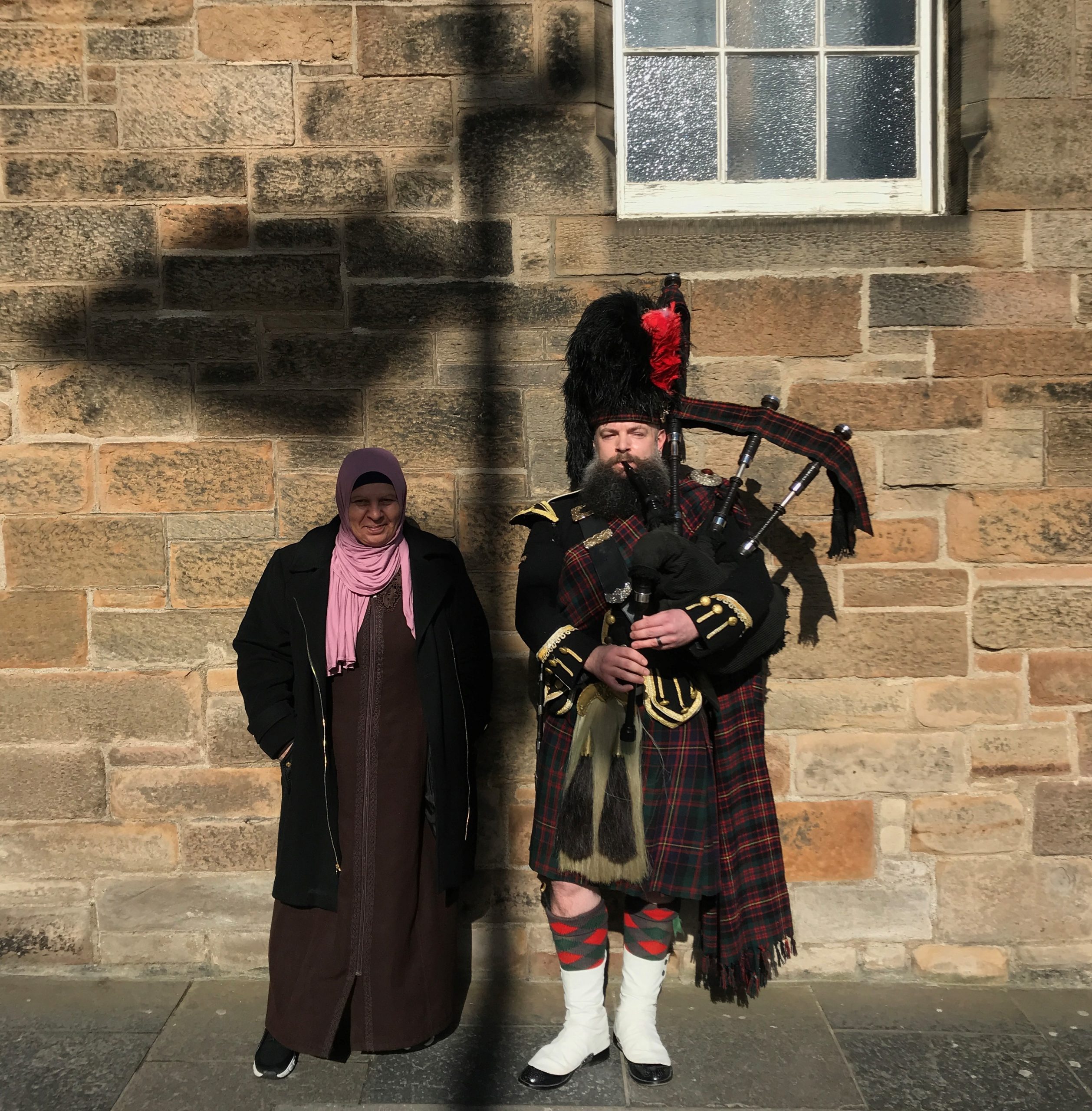
Voices of Palestine: Launch Tour

Last month we launched our new campaign Voices of Palestine to recentre Palestinians at the heart of their struggle for liberation, giving a platform to Palestinians to champion their own story, articulate their own discourse and reclaim their narrative.
Our government’s support for institutionalised regimes of oppression such as Israel’s systemic racism against Palestinians is maintained partly through silencing the voices of those it oppresses. By amplifying Palestinian voices we open up a space for Palestinians to lead from the front in their struggle for liberation, empowering all of us who support them along the way.
Despite our UK tour with Laila Hassan getting cut short due to COVID-19, it was a huge success.
Laila, the only female shop keeper in the old town of Hebron who runs the Women in Hebron cooperative spoke directly to hundreds of people up and down the country alongside other Palestinian voices along the way. In addition her voice was amplified to millions on the airwaves via the BBC. She moved audiences to tears with her experiences surviving in and supporting women in the ‘world’s most occupied city’ but also inspired hope with her wit, ceaseless energy and her belief that together we can bring about justice.
Read on to learn how our first Voices of Palestine tour unfolded with Laila Hassan of Women in Hebron alongside Hala Shoman and Ahmed Alnaouq, two students from Gaza and Yana Shabana, a PhD candidate who grew up in the West Bank.
Celebrating International Women’s Day: London Thursday 5th March
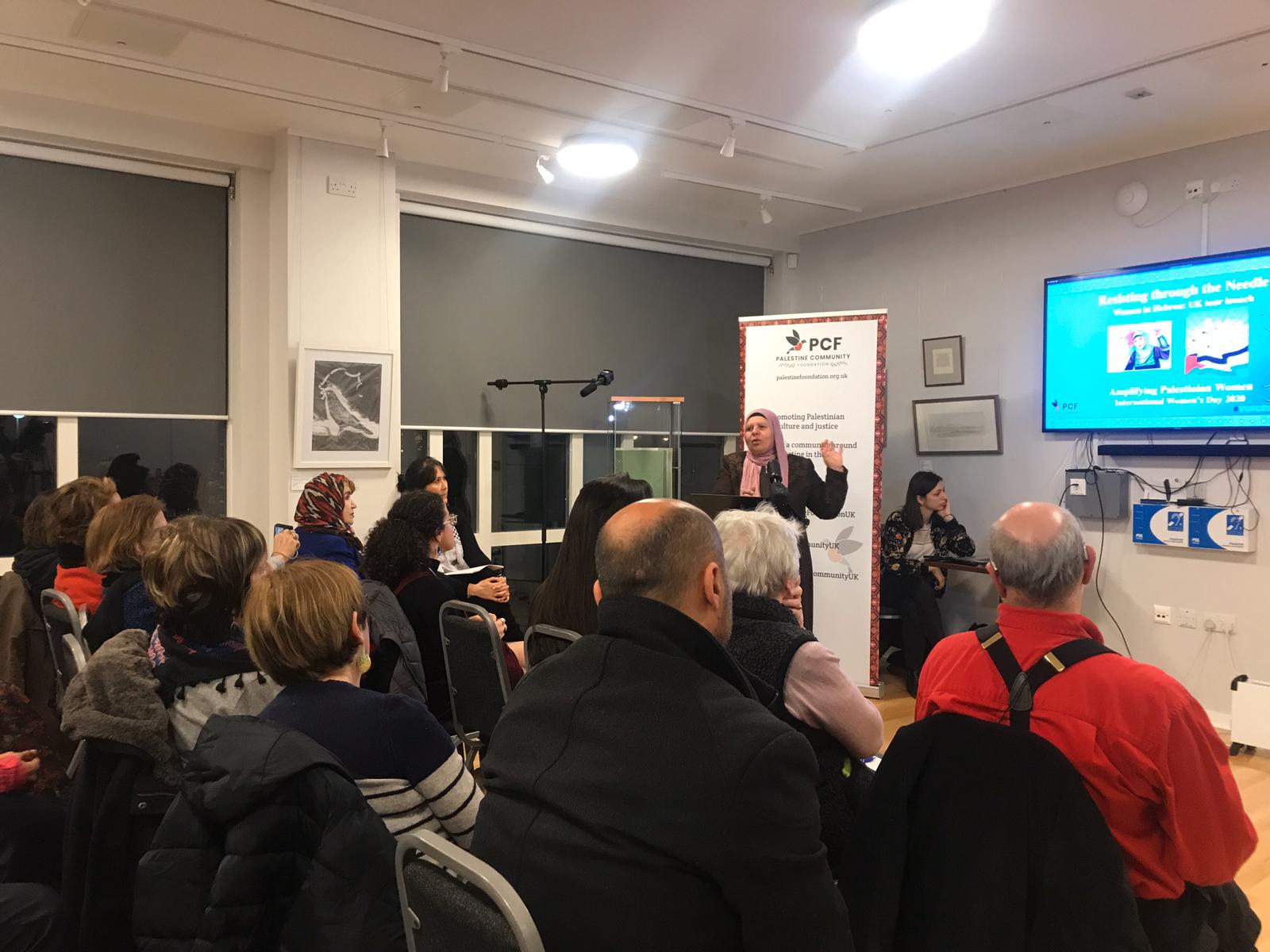
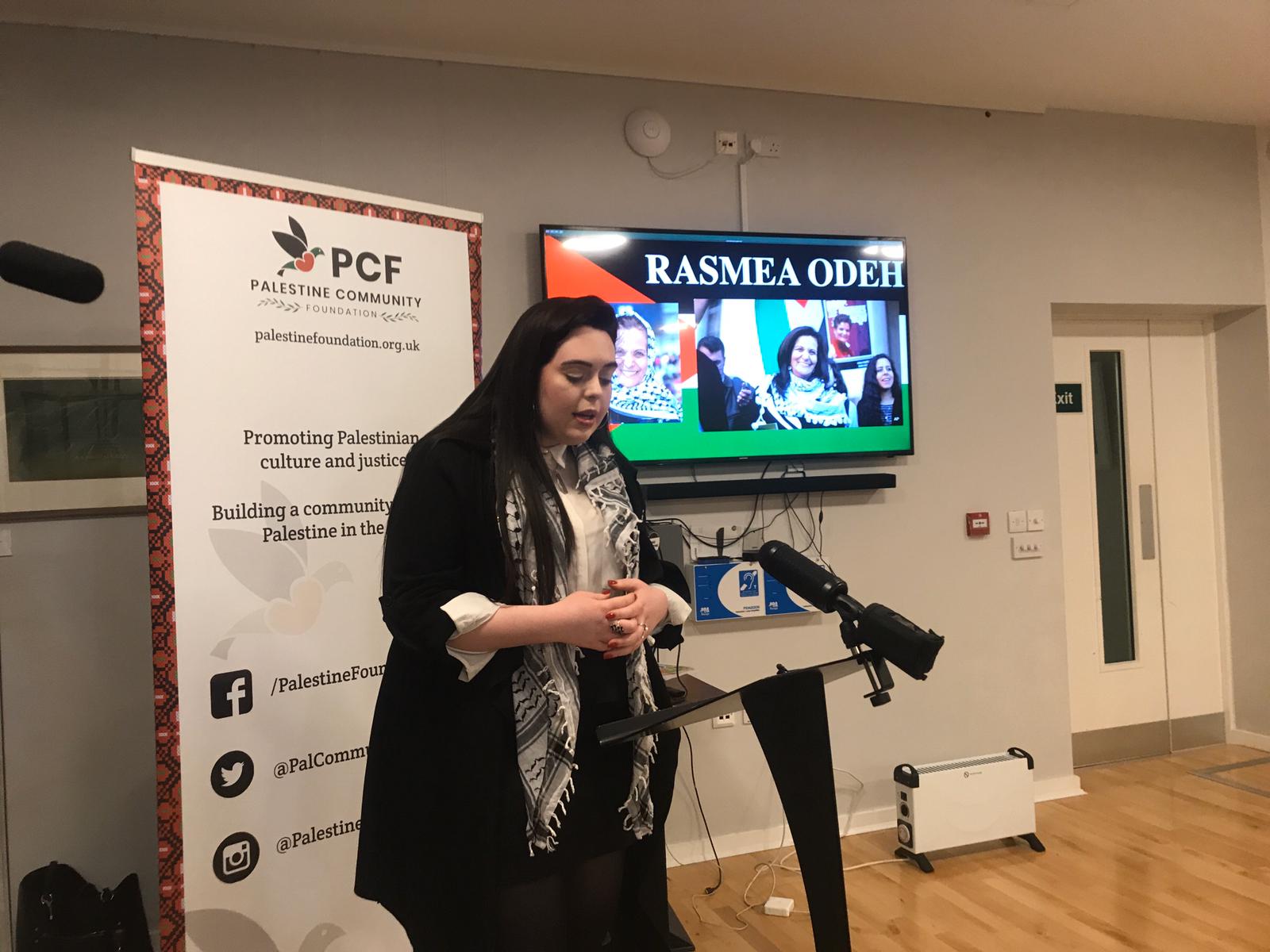
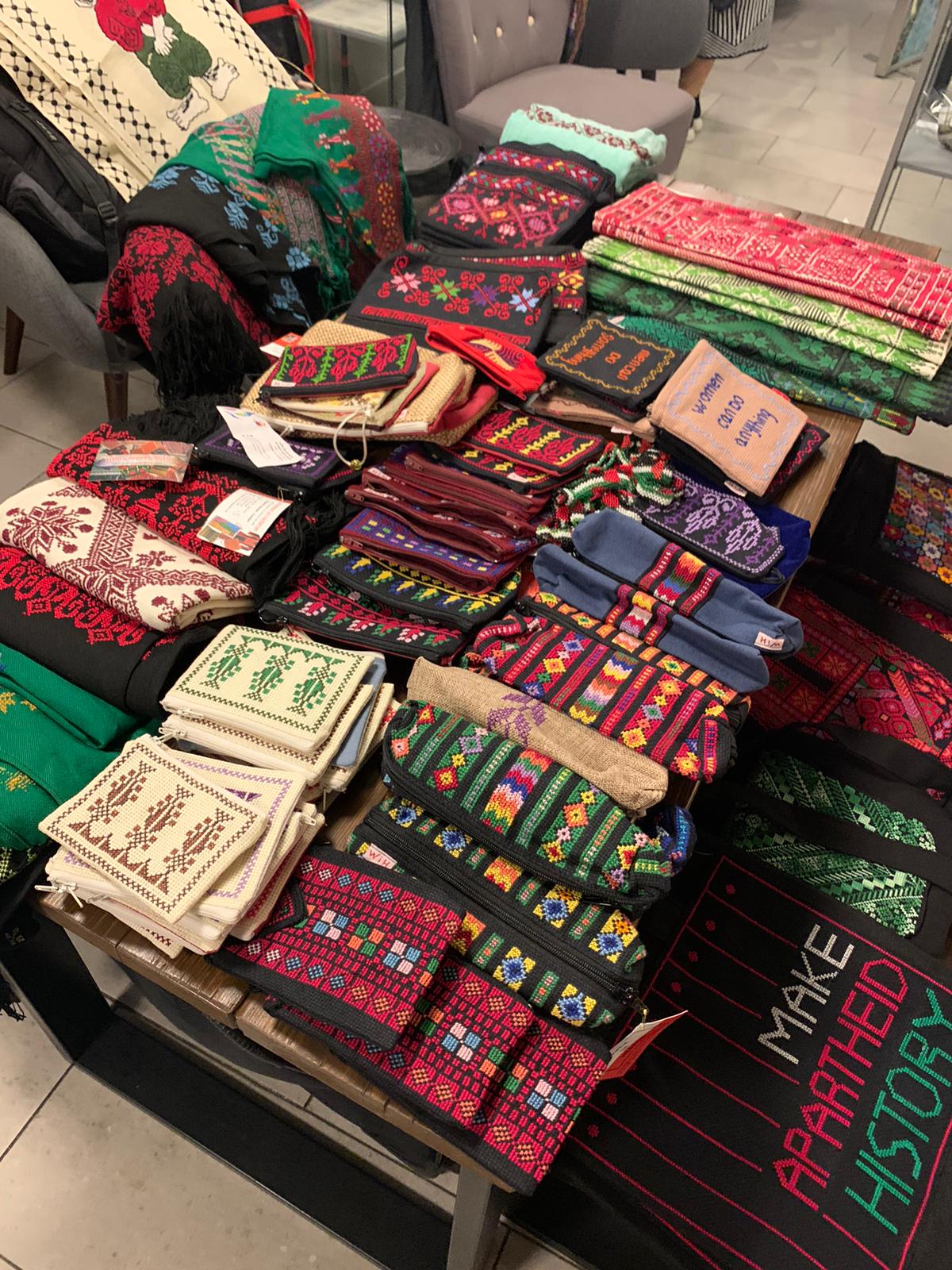
What better way to celebrate International Women’s Day than to amplify the voices of Palestinian women? Farrah, president of SOAS PalSoc, gave a heartfelt presentation of a selection of Palestinian women who personally inspire her. She included esteemed author and physician Dr Ghada Karmi, winner of the Global Teacher Prize Hanan Al Hroub, US Congresswoman Rashida Tlaib and the courageous Rasmea Odeh who endured torture and brutality under Israeli detention.
Meanwhile Sarona explored the complexities of Palestinian identity for those in diaspora. “I’ve always been able to connect to my Palestinianness through the stories.” She reminded us “there are 7 million of us living outside of Palestine,” so “Palestinianness is not limited to physical space. It’s an inheritance.” She also spoke on the links between global injustices, sharing that the same concrete company which built the Israeli apartheid wall is being used to build the wall on the US-Mexico border.
Finally Laila blew us away with an impassioned speech describing her life in Hebron. “Could you live where I live? Could you stay where I stay, in front of a settlement?” she asked of her audience. While her own water is limited and she cannot shower freely, her settler neighbours have a swimming pool.
“We don’t need you to liberate us – we will liberate ourselves,” she emphasised, before displaying the handmade embroidery products, made by women from across the Hebron district, the sales of which support their livelihoods. “I’ll never accept the occupation,” was Laila’s strong message of the night, and as our our chair Laura Abraham pointed out at the time, why on earth should she?
We were grateful also that our local MP and long time friend to Palestine Andy Slaughter was able to join us.
BBC World Service Interview London: Morning of Friday 6th March
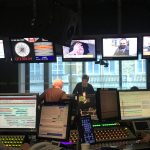 “Ha Bi-Bi-Cee time!” Laila told the taxi driver Friday morning. Laila was interviewed on the BBC World Service radio broadcast live to 200+ countries. She exposed the everyday violence of Israel’s occupation and her mission to empower women in Hebron through embroidery. “I joined Women in Hebron in 2008 and I [worked] in Jerusalem before but I lost my job when the Israelis built the wall and we were stuck in the West Bank and we cannot go anymore to Jerusalem”.
“Ha Bi-Bi-Cee time!” Laila told the taxi driver Friday morning. Laila was interviewed on the BBC World Service radio broadcast live to 200+ countries. She exposed the everyday violence of Israel’s occupation and her mission to empower women in Hebron through embroidery. “I joined Women in Hebron in 2008 and I [worked] in Jerusalem before but I lost my job when the Israelis built the wall and we were stuck in the West Bank and we cannot go anymore to Jerusalem”.
“I spent a long time outside my country I miss my children but really I want to give my message for other ladies how the women under occupation they live and how the occupation affected our business.”
You can click here to listen to the BBC World Service interview in full.
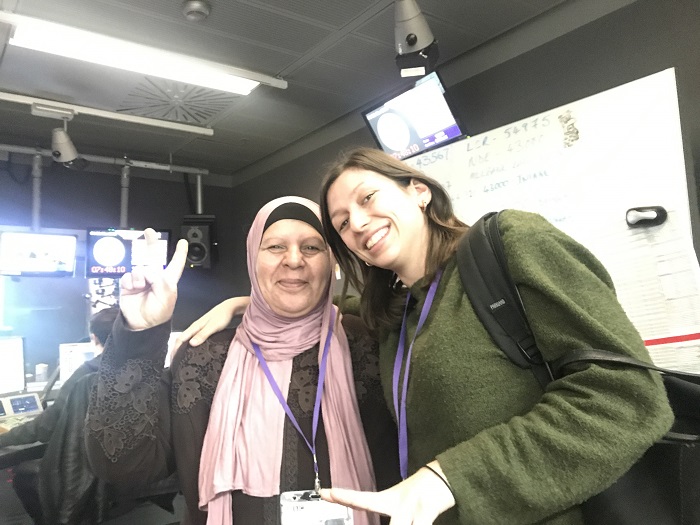
Universities of Birmingham and Aston Talk: Afternoon of Friday 6th March
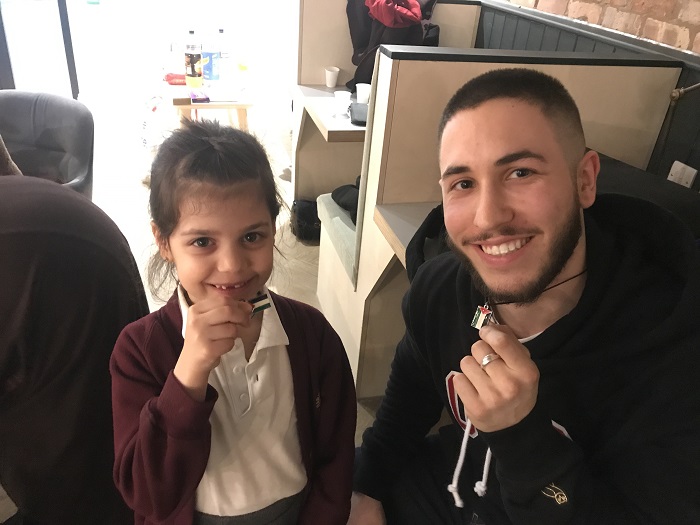
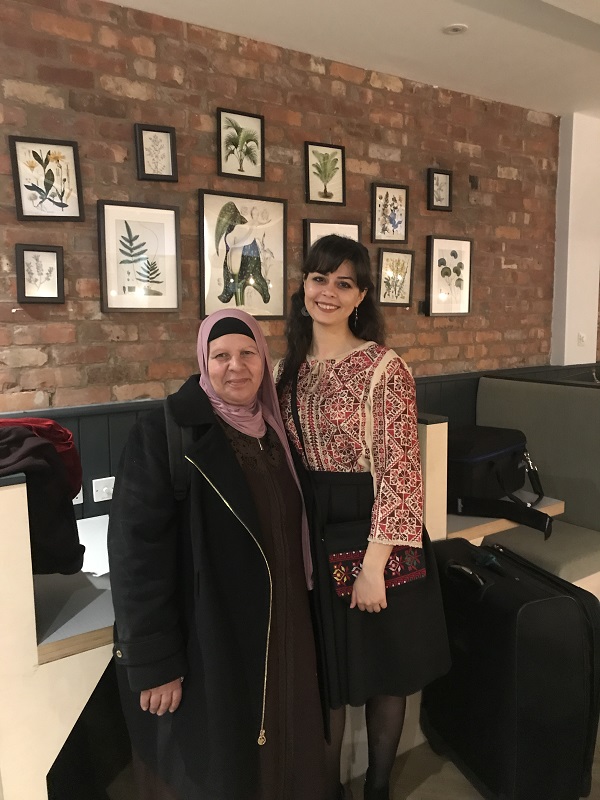
Laila spoke alongside the wonderful Yana Shabana to students from the universities of Birmingham and Aston. Yana Shabana is a Palestinian Doctoral Researcher in the Department of Modern Languages at the University of Birmingham and like Laila, also from al-Khalil (Hebron). Her PhD title is Translation Through the Prism of Settler–Coloniality: Indigenous Elimination, Framed Translation, and the Israel–Palestine Conflict.
Whilst both Laila and Yana are from the same Palestinian city, the accounts of their experiences were contrasting. The generational divide and different familial circumstances between Laila and Yana clearly helped shape different experiences growing up, exposing the multiplicity of the Palestinian experiences which often gets overlooked. Palestinians often get misrepresented as one homogenous group with identical opinions, experiences and identities but nothing could be further from the truth.
Yana fought against the often perceived homogenisation of ‘the Palestinian experience’ and illustrated how ‘rich and multifaceted Palestinian women’s experience can be’. Through three fascinating case studies: Samaritan women of Nablus; the Dom people of Jerusalem and through her own mixed heritage of being Russian and Palestinian. Yana exposed how identity is both ‘self-appointed but also externally imposed’, illuminating the interplay between environment and shifting perceptions of identity.
Laila gave a rousing account of her experiences enduring occupation in Hebron as well as giving more insights into why she must tirelessly educate the world about Women in Hebron cooperative’s work to assist women enduring Israel’s occupation. “For me really it is still hard to talk everyday about these stories. People may think I come here for fun. I don’t come here to your country for fun. I haven’t seen my children for a long time because I have to travel to give the talk about the women. How we can empower the women under occupation.”
Laila and Yana’s experiences heavily contrasted on some areas but overlapped on others. Yana contextualised some of Laila’s experiences living in Hebron with some of her own, “Their shop is in H2 and H2 is the settlers’ part and in order to go into H2 you have to go through checkpoints. And when we say checkpoints people assume they’re always open but they’re not always open. And if they are you have to be permitted to go through. Sometimes you can be returned for no reason and that puts people off. Sometimes you are humiliated sometimes you are forced to stand in the sun for an hour so you never know what’s going to happen.”
She recounted her memories of having to navigate checkpoints as a child, “I grew in Hebron myself and I remember having to go as a child through checkpoints, it’s really traumatising as you’re tiny, you have a massive bag, you hate the bag as it’s really heavy, and then you have to go through all these metal bars and stuff and go through these revolving doors, and you are stopped by soldiers who are heavily armed and you are asked to open your bag.”
“And you can’t understand why you have to open your bag and the most annoying thing is for a kid is you have to take all of your stuff out but then you have to put them back so that would have to happen on an everyday basis… but you as a child you understand that this is wrong or this shouldn’t happen as when you watch the settler kids just stroll through and then you realise that you are targeted but you don’t understand why. But because you have to go through this every day people force themselves to get used to it. As I said before apartheid does not make any sense.”
They both agreed on the brutality of the occupation on Palestinians’ everyday lives. “You can never imagine how is your life when you are sitting in your home like now someone comes and puts a bomb in the door and enters inside your room without asking you. Can you imagine?” asked Laila.
Women’s Strike Saturday 7th/ Sunday 8th March
Laila couldn’t have been in the UK at a more appropriate time. She was highly sought after for International Women’s Day events and her stall selling handmade embroidered items from the Women in Hebron cooperative proved extremely popular.
Sheffield University: Monday 9th March
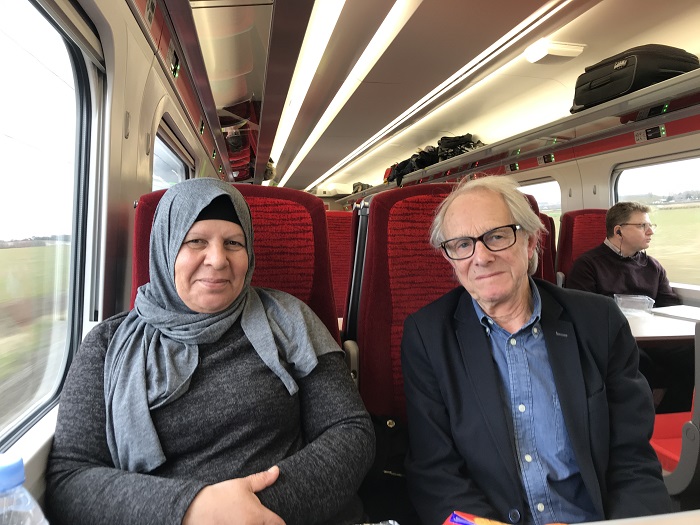
On our way up to Sheffield on the train we bumped into the one and only Ken Loach. A true hero on the left and icon of anti-racist campaigning as well as being a rare voice in culture for the oppressed. Ken was very pleased to hear about the new Voices of Palestine campaign and was fascinated to hear Laila’s personal stories from living under occupation. He expressed his regret at not having made a film on Palestine but gave his deepest sympathies and solidarity to Laila and the cause. One word to describe this photo? Iconic.
The audience featured a mixture of Sheffield University students and local activists. Yazan, the president of Sheffield University PalSoc gave rousing introductory and closing speech,
“Today is a very special day for us as a Palestine society with today’s event coinciding with International Women’s Day.
It is very important as Palestinians to honour Palestinian women’s courage and steadfastness in the face of continuous brutal apartheid regime of Israel. It’s very important to shed the light on the suffering of Palestinian women in occupied Palestine who continuously find themselves fighting the battle on their own. After their sons and husbands are detained by the Israeli regime.”
Laila was on top form as always: “What you have just seen in four minutes we have it every single day. Can you imagine how is the life? How you can do the business? How you can live there? If you live in Hebron what can you do? Can you stay forever like this? Can you do that? But Palestinians they can do that. You know why? Because we have the right to be there. We never give up. Even with all these problems. We have the right to be there.”
“This is something very important to note. We are not fighting the Jewish people. We are fighting the occupation.”
When asked by what it’s like to be a mother in Palestine, Laila had some uncomfortable home truths, “The parents never feel they can protect their children in Palestine. I am sorry to tell you.”
As always. Women in Hebron’s embroidered items delighted all who attended. A big thank you to Angela for hosting Laila and providing such delicious food!
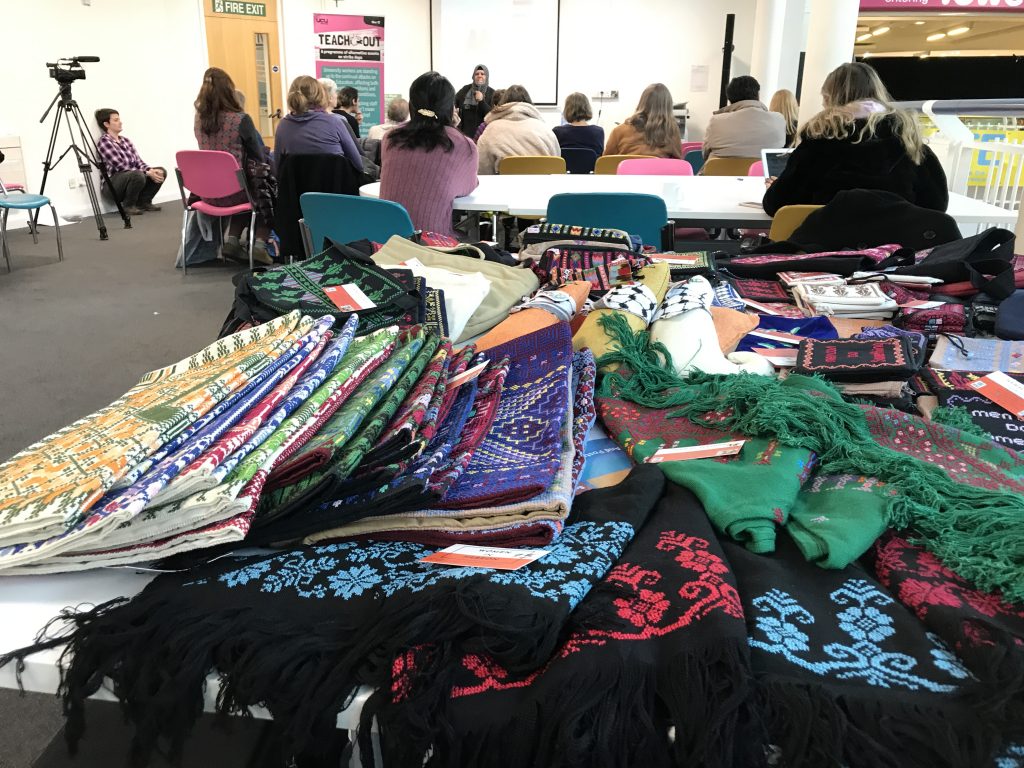
Newcastle: Tuesday 10th March
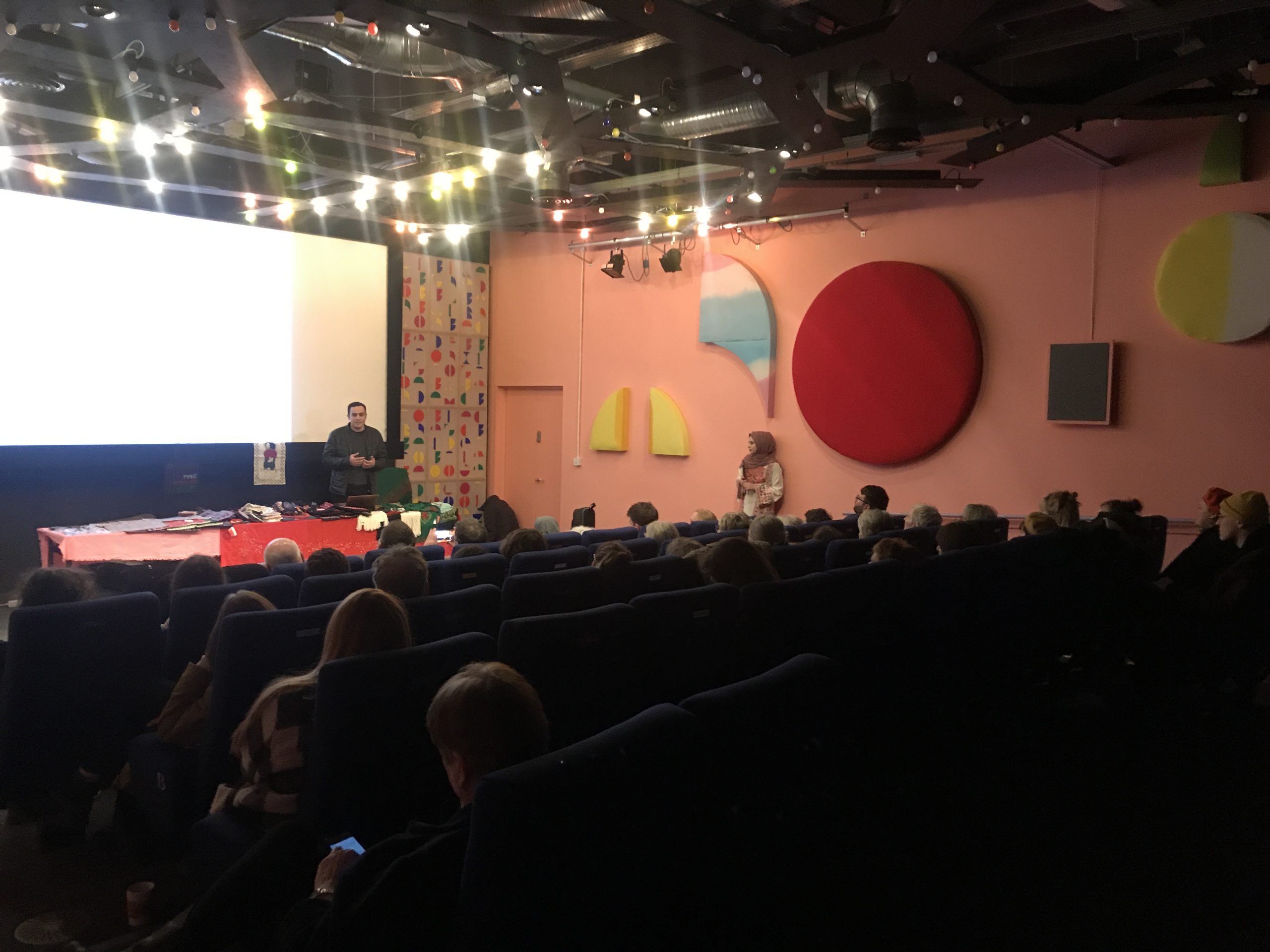
Star & Shadow Cinema hosted Laila alongside two more Palestinian speakers, Hala Shoman and Ahmed Alnaouq, to a packed audience of attendees in Newcastle. Both Hala and Ahmed are Chevening scholars from Gaza studying masters courses at Durham and Leeds universities. Ahmed is also International Director of We Are Not Numbers, an organisation which trains and promotes young Palestinian artists, poets, filmmakers and storytellers to express their experiences to the wider world, in defiance of the regime of the dehumanisation operating in the mainstream media and among political elites. And Hala is also a trained dentist and paramedic for the Palestinian Red Crescent Society who faced a wall of snipers when helping victims in the Great March of Return.
Laila kicked off the event.
“When we talk about Hebron and how is the life. I mean if you are sitting here and [on] the top floor (raising her arm) you have the settlement here. What kind of business can I do? Our shop is under the settlement. You are just sitting and [suddenly] garbage, you never know what you have to accept from them, garbage or bottles or stones. Like this. But you have to know if a Palestinian child he did this, he can be arrested. But a [settler] child with guns, he can shoot you and kill you. And they did. They shot and killed young people. Settlers, nobody can punish them. I mean in which international law can children be imprisoned? Girls or boys doesn’t matter for the occupation. They can charge you even if you are a child. But they can never charge their children and put them in prison. Where is the justice here?”
From hearing the rising death toll each day, to the daily rituals with friends to alleviate the ceaseless trauma, to losing dear loved ones, the audience was captivated by Ahmed’s talk. Shocked but in awe at one man’s bravery and ability to turn such horrendous experiences into a such an imaginative and inspiring project, We Are Not Numbers. But just as powerfully, Ahmed described how excited he was today because that day was the first time in his life he met a Palestinian from Hebron, as Palestinians from Gaza are forcibly denied access to the West Bank and world outside Gaza, vividly exposing the regime of enforced fragmentation imposed on Palestinians.
“For we as Palestinians from Gaza it is very very difficult for us to meet people from the West Bank. I am 25 and I have never been to the West Bank. All my life, my ultimate dream has been to visit Jerusalem, to visit the West Bank, to go and walk in the old city of Jerusalem, or Ramallah, or Hebron but I have never been able to.”
“And if you go to anyone in Gaza and you ask them have you ever been to the West Bank, especially anyone my age, no one will tell you yes. Not because we don’t want to go there. Not because we don’t love the West Bank but because we are deprived from going there because of the Israelis. Do you know how far Hebron is from Gaza? Not more than 30 miles and for us as Palestinians it’s impossible to go there, if we want to go there we have to get a permit from the Israelis and nearly all of them are not permitted.”
“The first time I’ve ever met someone from the West Bank was three months ago in Leeds. They were two people one from Ramallah, one from Nablus. Laila is the only person I have ever met from Hebron. Can you imagine that? She is the only person. And the only person I’ve met from Jerusalem was here two months ago in London.”
“I finished my [previous] talk so many of the audience came to me and told me they had been to Jerusalem and they have been to the West Bank. And I really wanted to shout out at them and tell them to stop because really I am jealous of them. I am jealous of them that we in Palestine it is so hard for us as Palestinians to got to the West and go to Jerusalem and others can go there so easily.”
Hala Shoman moved the room telling another dimension to the experiences of young Palestinians in Gaza. She recounted her time recently protesting and working as a paramedic helping to treat some of tens of thousands wounded just from innocently demonstrating their illegal incarceration in the Great March of Return.
“As we can see I was holding a book…. people had the embroidery to sell, and they had lots of cultural activities. We had weddings, songs and people played football and other games around that area. On the first I was standing 800m away from the fence, and a guy was standing just behind me beside the ambulances and I was just changing my position and looking backwards because there was sniping at the time and then I saw the guy standing at the ambulances and having a gun shot in his head he died immediately.”
“Gaza Strip It’s almost 365km squared that occupies 2 million people. This is me on the first day of the Great March of Return, I was one of the protestors. And as you can see everyone is just hiding their nose because there were [tear] gas inhalations around all of us. I was closing my eyes as it harms them.”
“And then this is the 4th of April, it is my birthday and I am reading another book also. I am showing the activities of those demonstrations because some of them were about reading and some of them were about education, it goes on with the days. It was part of a film a documentary film about the Great March of Return done by a journalist called Yaser Murtaja.”
“This is Yaser Murtaja, he is a very good journalist. He showed reality and showed what the occupation is doing and he showed lots of honest and good media that supports Palestinians and human rights [violations] which wasn’t the best thing for the occupation. This is Yaser Murtaja and this is his vest. He was killed two days after I met him from a gun shot. He would wear his bullet proof vest but at the side is an open area. The sniper was very much determined to kill him and shot him in the abdomen… The bullet damaged his internal organs and the next day he died.”
After Hala spoke, Laila’s stall was mobbed by the 80 strong audience browsing her beautiful products and wanting to speak to the three speakers in person.
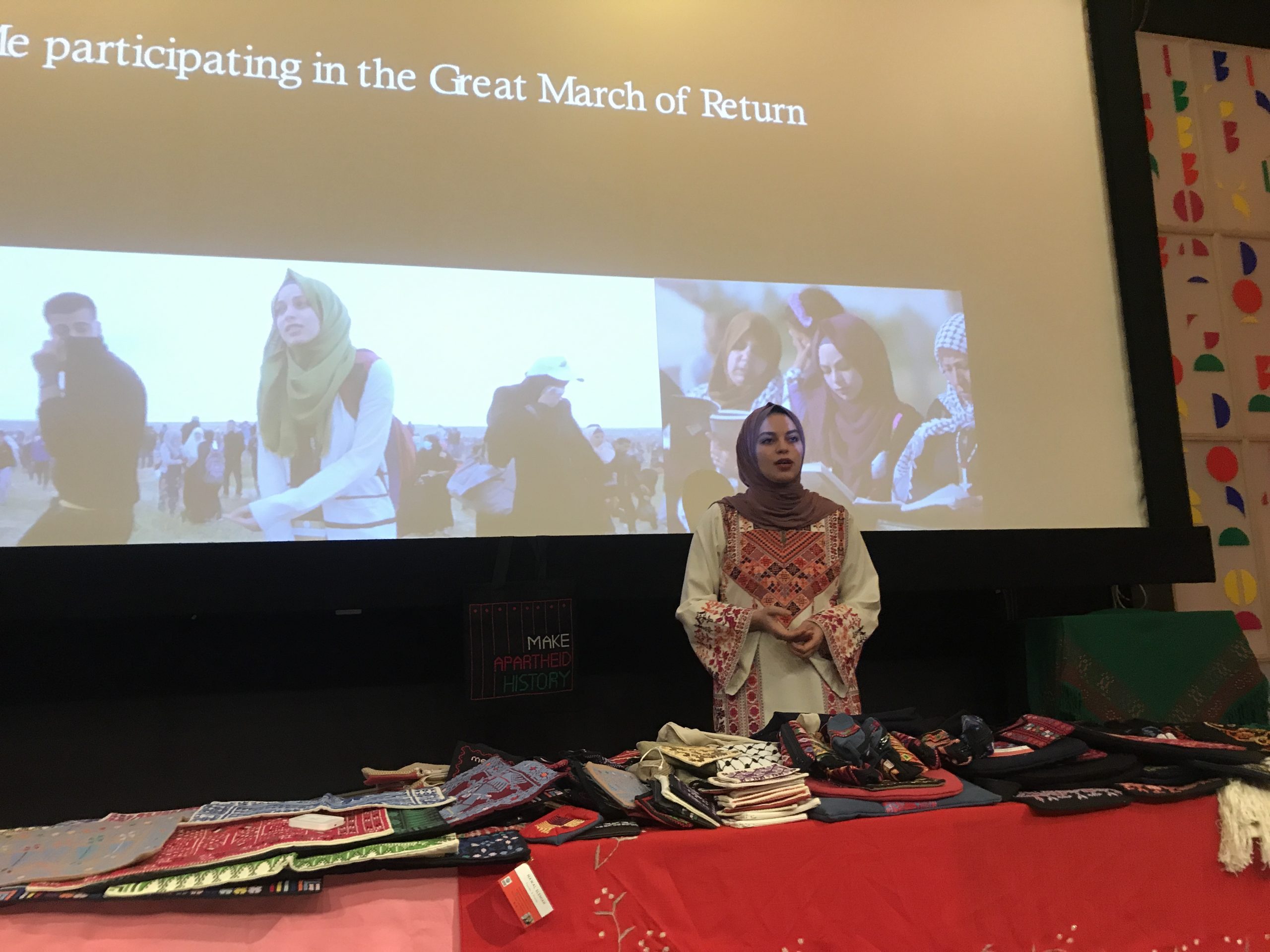
Durham University Labour Society: Wednesday 11th March
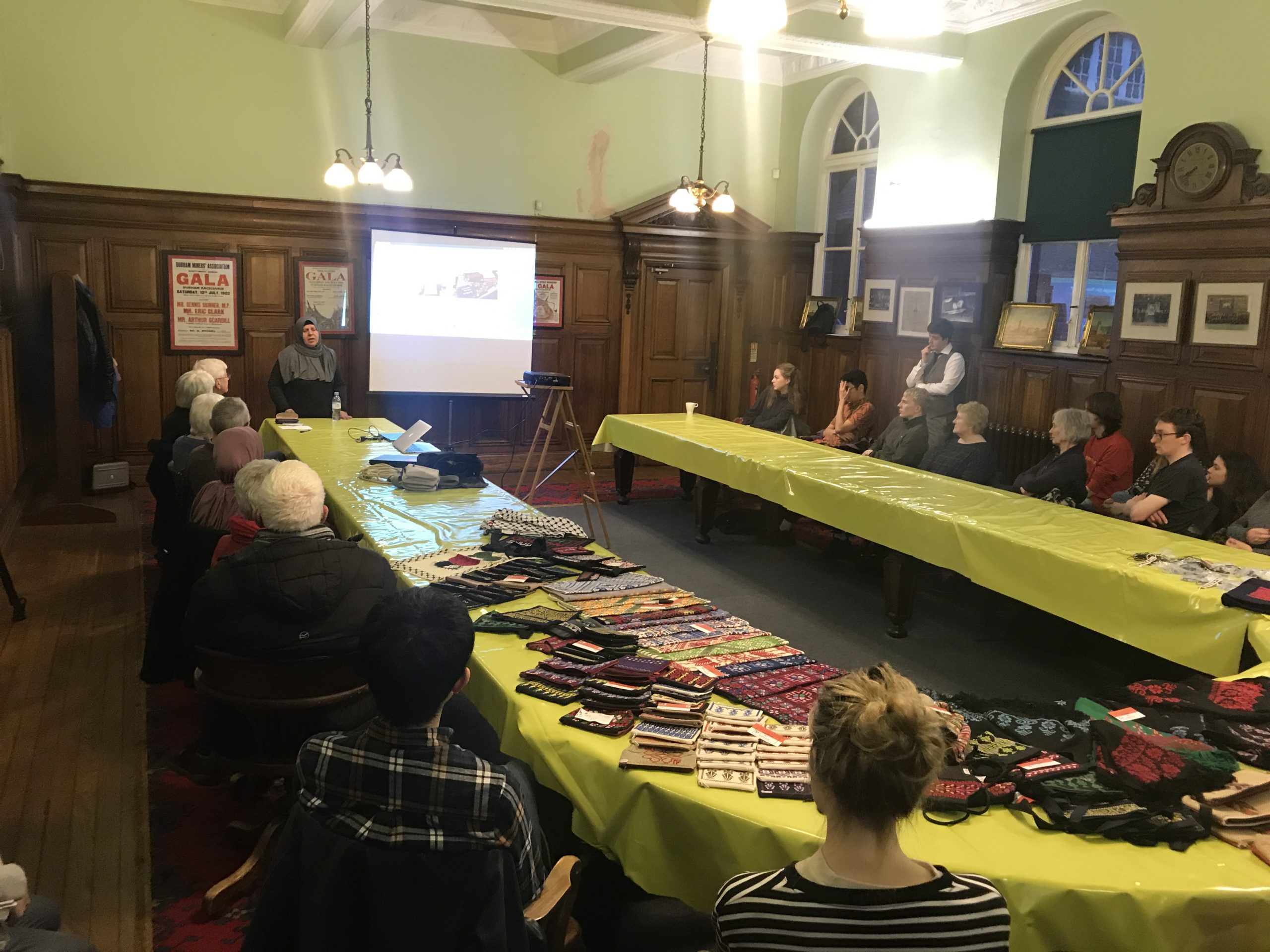
After a tremendous event in Newcastle Laila was in high spirits and excited to be joined alongside Hala and Ahmed again for another talk in the North East. This time the event was hosted by Durham University’s Labour Society and was held at Red Hills, a fantastically historic building steeped in working class history and solidarity, home of the Durham Miner’s Institute.
Local activist, writer and campaigner Bill Williamson gave a highly valuable preliminary overview of the Palestinian story, bringing the audience up to speed with British involvement in the creation of Israel and its sustained support Israel’s regime of apartheid and ethnic cleansing over the Palestinian people. The Labour society was very appreciative to host Laila, Hala and Ahmed and hear from a multiplicity of Palestinian voices and perspectives.
Ahmed’s personal account of what it’s like to endure three aerial assaults on Gaza by Israel in 2008, 2012 and 2014 had the room hanging off his every word.
“They launched a war in 2008. And I remember that war very carefully. I remember these days very, very clearly. And that day when the Israelis launched the war it was 27th December 2008 and I was at school. I was only thirteen years old. I was waiting for that class to begin and suddenly I heard strong explosives all around my school. There were bombs, smoke, clouds of smoke everywhere. I saw shrapnel, body parts flying through the sky. It was everywhere. I thought that was the beginning of the afterlife. It was so scary. I ran out of school and the only thing I saw in the sky was the Israeli Apache helicopters and F16s. And they were so fierce they started to bomb everyone. On my way home the only thing I saw there were people in body parts, cars rushing, people injured and people dead and that was a really hard moment for me. When I reached home I heard Ehud Olmert. And he was so proud that he had killed 400 Palestinians in less that one minute. And he was so proud about it.”
Ahmed went on to explain the how We Are Not Numbers started:
“We called it We Are Not Numbers because we want the world to know that we are not numbers because we want to show them that there are some stories that are worth telling behind the numbers that you see in the news. These numbers are impersonal and they have stories behind them. So we started We Are Not Numbers. Under We Are Not Numbers we write so many types of writing, we write personal narrative and news features, reality based fiction, opinion and poetry. And we link these writers from Gaza with international mentors and authors to help them write their stories. And in Palestine as you may have heard a vast majority of Palestinians in my generation have never left Gaza. Have never been in touch with the outside world. They have been in isolation and siege. But through We Are Not Numbers we help these writers connect with international mentors from America, from Britain from all around the world and they start to mingle with other cultures and that is very important for our people.”
Hala told of her personal friendship with the Razan Al-Najjar, the medic shot dead by Israeli sniper having been given the green light by Israeli Occupation Forces to tend the wounded, to her experience seeing bullets slice through those beside her protesting their illegal imprisonment in Gaza.
“After what happened on the 14th May especially, I was there as a demonstrator at the beginning of the day but then I had a phone call because I am also a dentist and a paramedic with the Red Crescent Society and they told me that it is an emergency situation and we are having a massive number of casualties and we need everyone to be there even if they don’t have any experience. At that time I was standing away from the fences and I saw what they were talking about. I saw hundreds of people standing and suddenly all of them had gun shots and they all fell down. I ran away immediately and went to the field hospital with the Red Crescent Society. The injuries were so bad.”
“This is Razan Al Najjar, she is a paramedic, she used to work at the Khan Yunis border. We once agreed that we would change places. The next week we wouldn’t have this opportunity. Razan very much as a feminist, activist and also as a very strong lady and paramedic. She used to go and rescue injured people by asking Israeli snipers on the borders to have permission at the side. When they give her the green light she would go in. She did that with four people and saved all of them. However one day Razan was 19 years old, volunteer paramedic, went and did the same. There was a casualty he was bleeding heavily, must be saved now or he will die. She raised her hands, got the green light, approached the patient and then she had the gunshot in her chest and died.”
She closed the talk with a summary of Palestinian demands:
“Okay, what are we looking for? What are we looking for? Sympathy? Charity? Friends? Unfortunately no. We are looking for our rights. We are looking for human rights, no occupation, no discrimination and just justice. We really love life. We really seek for that. If you just visit us or [listen] to anything that we talk about or do, you will know how much we seek for that good and proper life. And as Rafeef Ziahad said, we teach life sir.”
Edinburgh University Justice for Palestine Society: Thursday 12th March
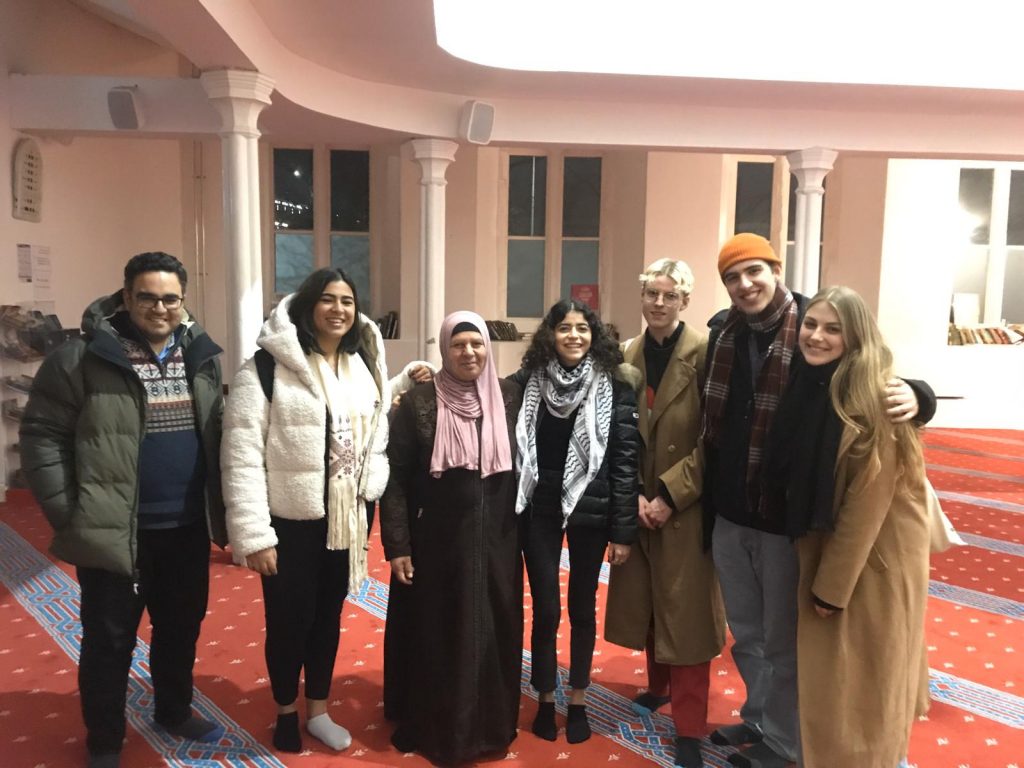
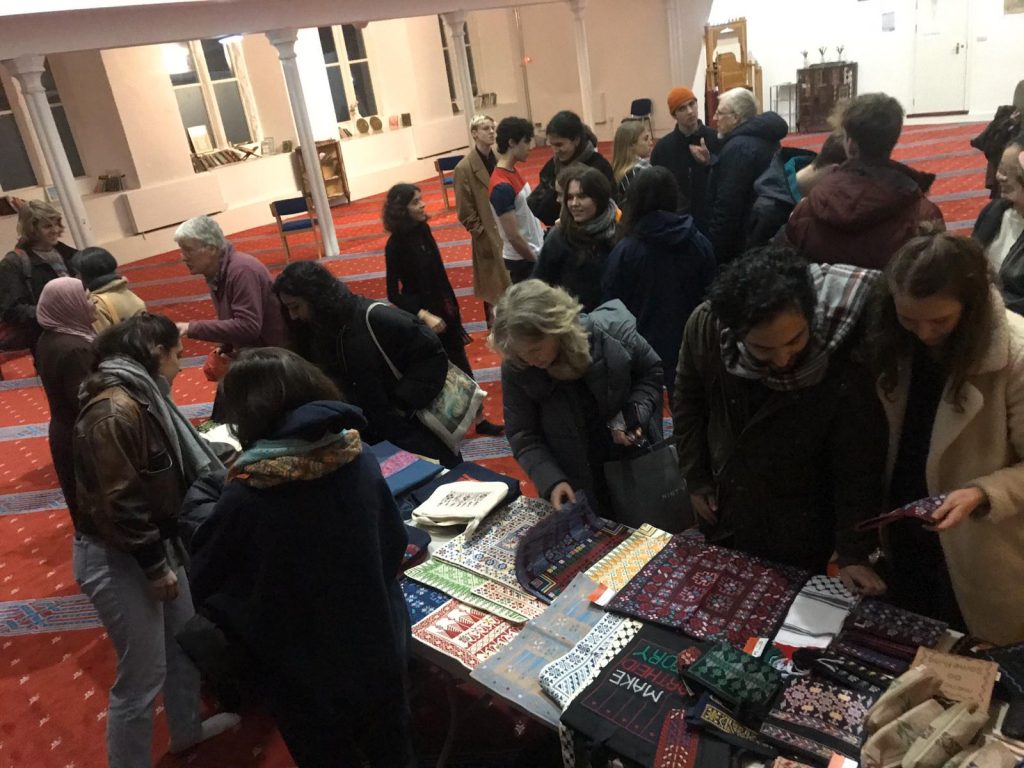
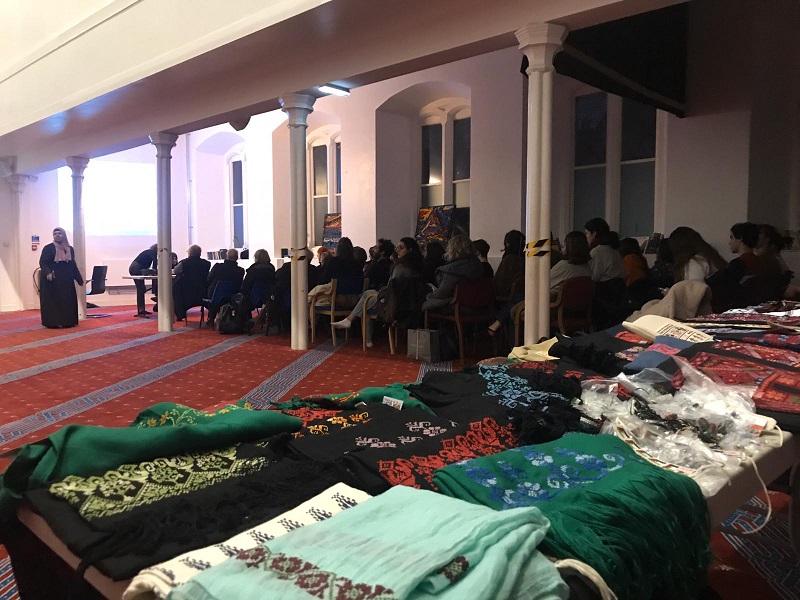
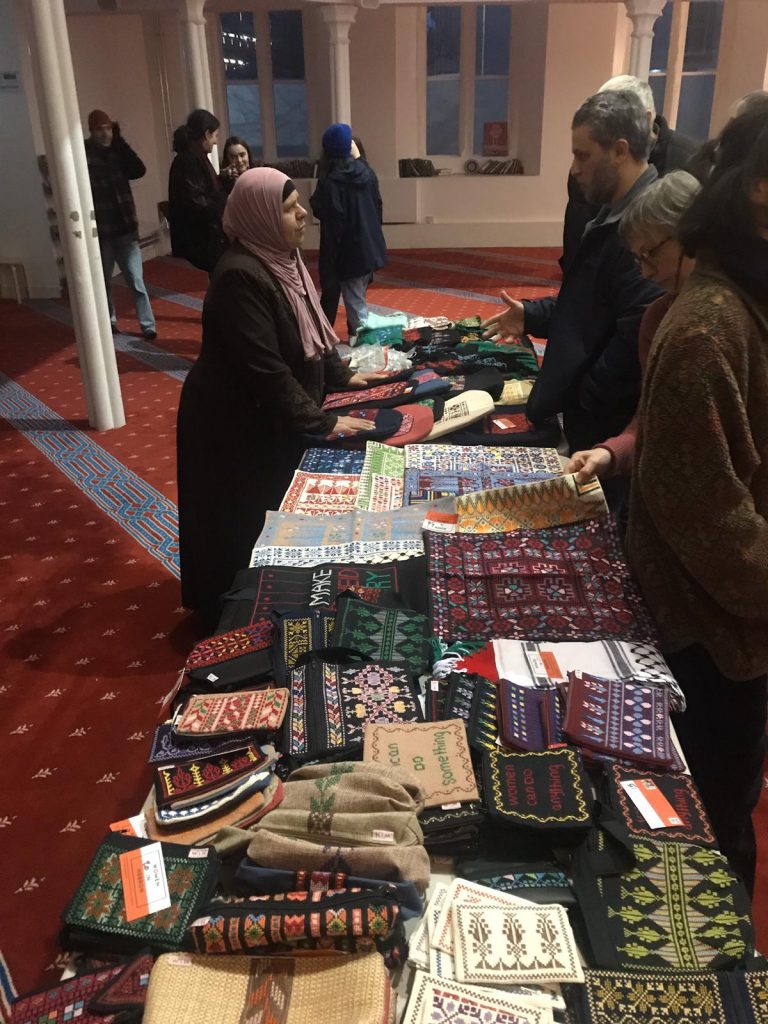
Following a successful event in Durham we headed to Edinburgh for the Scottish leg of the tour, although by this time the news of the spread of COVID-19 was growing more serious in the media and the rest of the tour dates were looking suddenly very uncertain.
Edinburgh University Justice for Palestine Society (EUJSP) hosted Laila along with Edinburgh Action for Palestine and the Muslim Women’s Association of Edinburgh at the Muslim Welfare House, Dar Al-Arqam Mosque on Lauriston Place. Scottish solidarity for Palestine is clearly alive and vibrant with a wonderful network of collaborative activism running across student and local organisations. Thanks to the coordinating efforts of the EUSJP the event was very well attended and a huge amount of love was expressed towards Laila.
Laila was also relieved to have time to pray in the mosque and take a well earned time out from the busy schedule. This was Laila’s first time in Scotland and she was fascinated to learn about Tartan weaving and the rich cultural history of Scottish craftwork. Friday she took a walk up towards Edinburgh Castle, taking in the crisp cool air, bag pipes filling the streets with music and witnessing the serene views across the city. Laila was quick to confirm, “If I lived in the UK this city is where I would live”.
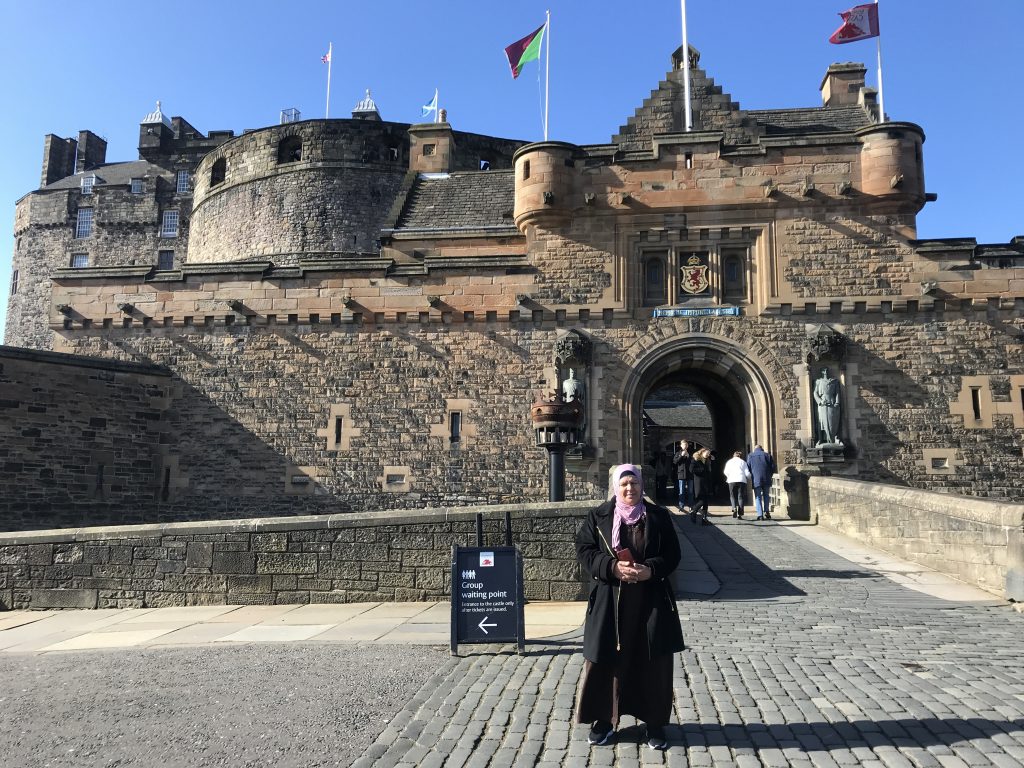
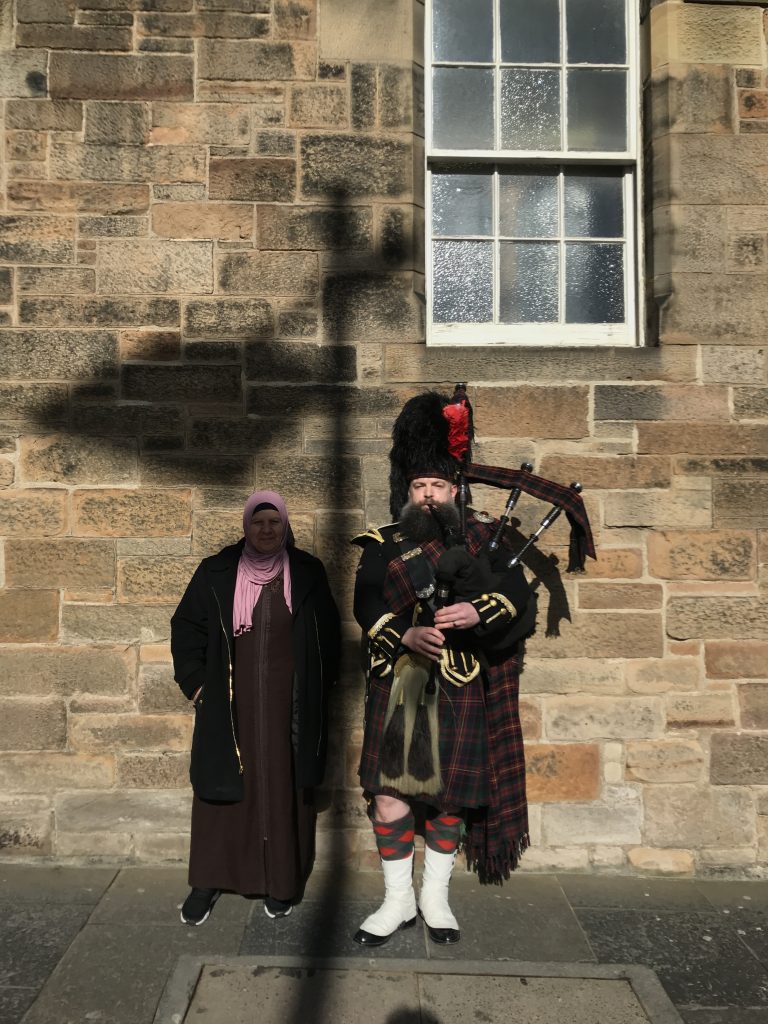
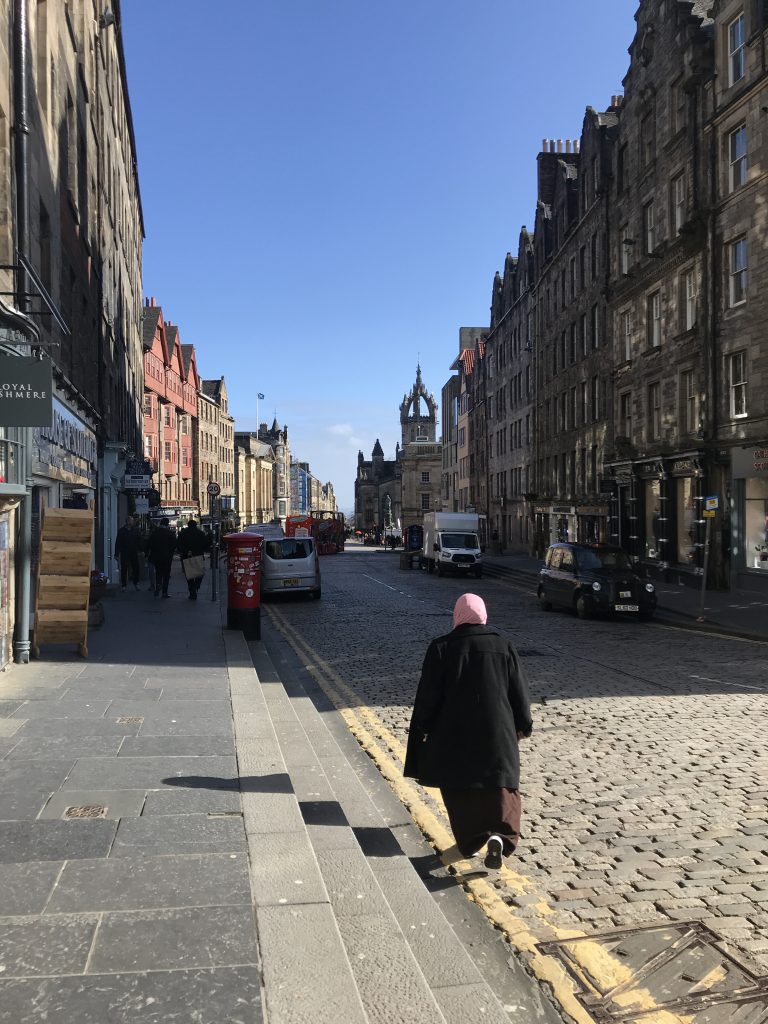
Glasgow University Friends of Palestine Society: Friday 13th March
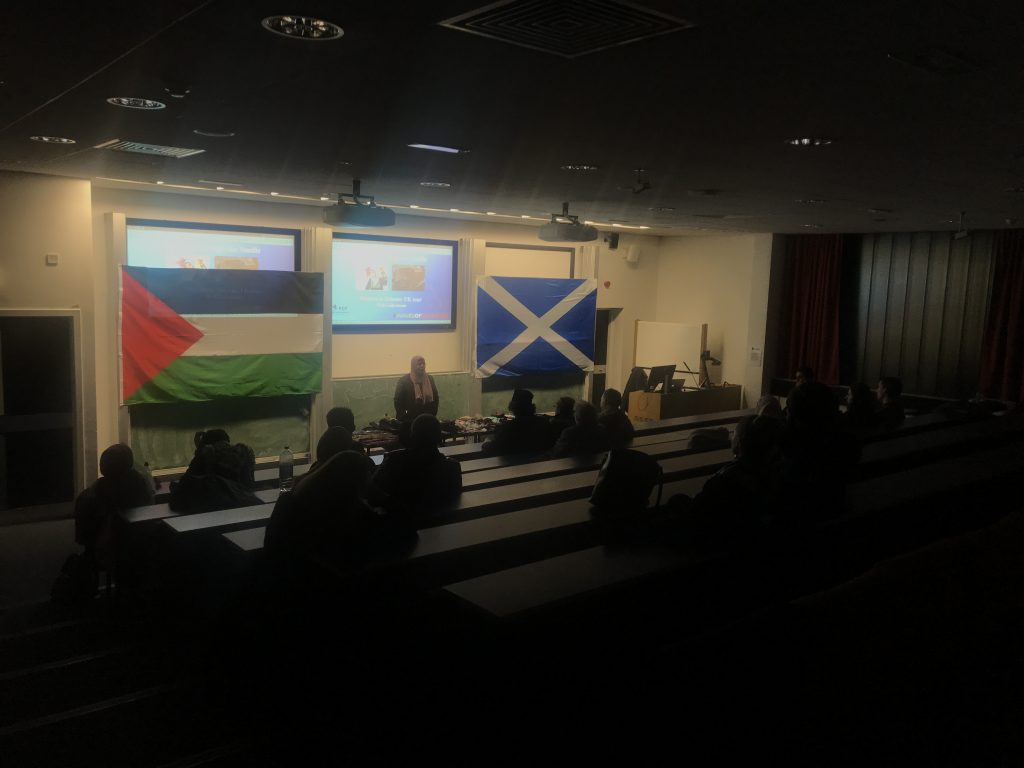
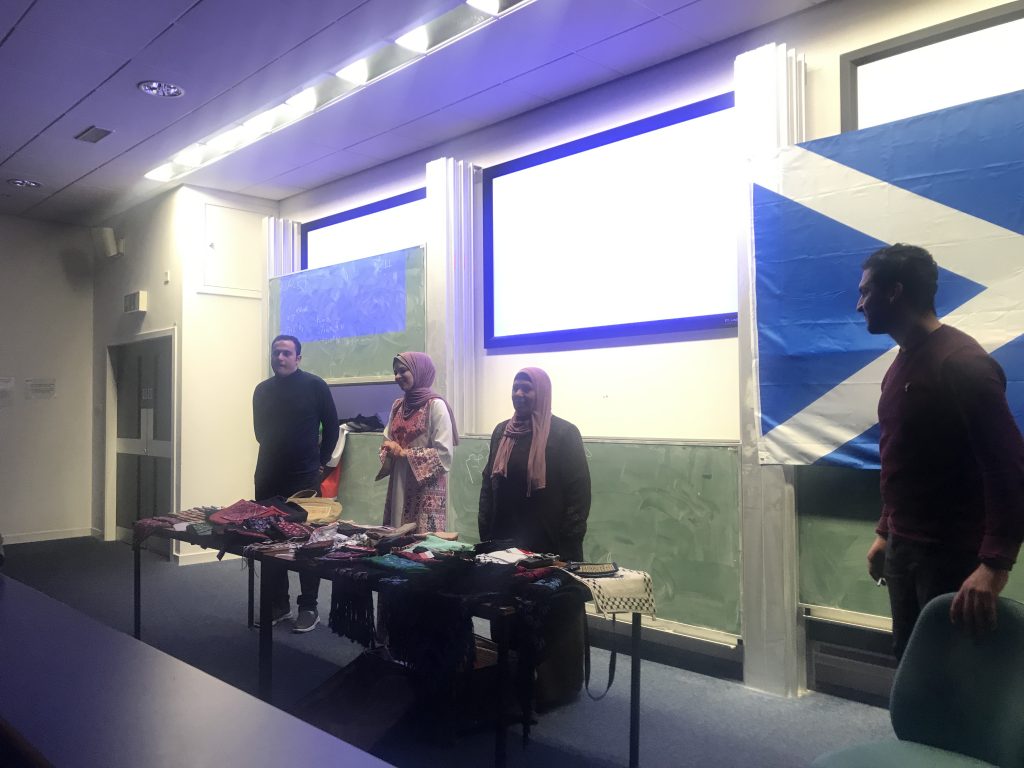
The second leg of the Scottish tour took Laila to Glasgow but by this time it was clear COVID-19 must be taken seriously and all forthcoming events on the tour had to be cancelled. Joined alongside Hala and Ahmed for the third time that week, Laila spoke as passionately as ever expressing the injustice of having to endure decades of occupation and urged the audience to support her fellow women’s work through Women in Hebron.
The next morning Laila headed back to London but unfortunately the rest of the dates at the University of Sussex, University of Bristol, King’s College London and the London Day of Action for Palestine had to be cancelled. This was extremely disheartening for Laila as her onward trip to the Palestine Festival in the US had also been cancelled, meaning she had no way of her selling her items for the 150 Women of Hebron who were relying on her. We are pleased to announce Laila has finally made it home after a gruelling quarantine period in Jordan.
If you would like to buy some of her fantastic items please contact us at PCF, we would be delighted to help you. Stay tuned for more #VoicesOfPalestine activity.

